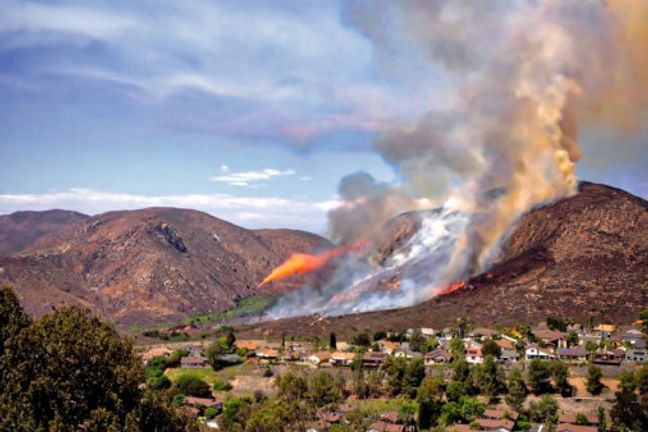Introduction
The Second District Court of Appeal of the State of California has unanimously affirmed there was no insurance coverage for a Southern California movie theater chain that suffered damages because of the COVID-19 pandemic. In Starlight Cinemas Inc., et al. v. Massachusetts Bay Insurance Co., decided on May 2, 2023, the court held the policy insured against the risk of “direct physical loss of or damage to” property, which required some tangible alteration of the property.[i]
The Facts
Starlight Cinemas owned and operated movie theaters throughout Southern California. The theater chain suffered financial losses due to the COVID-19 pandemic and sought coverage under its commercial property insurance policy, which included Business Income and Extra Expense Coverage (colloquially referred to as “business interruption coverage”). According to Starlight Cinemas, in March 2020, the County of Los Angeles Department of Public Health and the Governor of California issued “Shelter in Place Orders” that forced Starlight Cinemas to suspend business operations at its locations, which resulted in a loss of business income.[ii] Massachusetts Bay denied Starlight Cinemas’ claim for business income loss.[iii] In response, Starlight Cinemas filed a lawsuit against Massachusetts Bay for breach of contract.[iv] The trial court granted Massachusetts Bay’s motion for judgment on the pleadings and entered judgment in its favor. Starlight Cinemas appealed the trial court’s ruling.[v]
In affirming the trial court’s ruling, the appellate court considered and adopted the reasonings and holdings of several other state appellate courts, including the Fourth District Court of Appeal in its recent decision in Inns-by-the-Sea v. California Mutual Ins. Co., 71 Cal.App.5th 688 (2021).[vi] The Inns court found no possibility of coverage under a commercial property insurance policy for a business’ loss of income from COVID-19 closures.[vii] The court explained the COVID-19 virus did not itself cause direct physical damage to the insured property.[viii]
The appellate court also highlighted the Inns court’s adoption of the “Couch on Insurance Treatise” for the general principle that in the context of first party property insurance, the mere loss of use of physical property to generate business income, without any material alteration on the property, does not give rise to coverage for direct physical loss.[ix]
In reaching its decision, the appellate court also considered and rejected Starlight Cinemas’ arguments in favor of coverage. For instance, Starlight Cinemas argued because the phrase “physical loss of or damage to” is disjunctive, “loss of” and “damage to” must each be given a separate meaning.[x] However, the appellate court noted with approval the Second District Court of Appeal’s rejection of that identical argument in Apple Annie, LLC v. Oregon Mutual Ins. Co. (2022) 82 Cal.App.5th 919, where the Second Appellate District characterized the argument as a strained attempt to create an ambiguity that could be construed against an insurer.[xi]
The appellate court also rejected Starlight Cinemas’ argument the phrase “direct physical loss of or damage to” is ambiguous and subject to a reasonable construction that supports coverage.[xii] In doing so, the court dismissed Starlight Cinemas’ arguments that: (1) no physical alteration is necessary to show the policyholder has suffered a “physical loss of” insured property when the government issues orders that prohibit the policyholder from using the insured property for its intended purpose; and (2) “physical loss of” includes the loss of use of the insured property, even if that loss is temporary.[xiii]
Based on the foregoing, the appellate court affirmed the trial court’s ruling on Massachusetts Bay’s motion for judgment on the pleadings.[xiv]
Conclusion
Since the onset of the COVID-19 pandemic, courts around the nation have faced the issue of whether insureds are entitled to coverage for business interruption losses resulting from the pandemic. In nearly all these cases, the question has turned on policy language requiring “direct physical loss of or damage to property” as a condition for coverage. The overwhelming majority of courts have held that there is no coverage for COVID-19 business interruption losses because the virus simply does not cause direct physical loss of or damage to property.
While the exact total financial damage stemming from the pandemic is unknown, it is likely in the trillions of dollars in America.[1] Businesses, many of which were closed or limited by executive orders issued by governors attempting to stop the spread of COVID-19, experienced significant losses as a result. They have attempted to have their insurance companies’ cover the bill by filing claims under their business-interruption insurance policies, citing COVID-19 as the source of interruption.
So far, the cases have resulted in many wins for the insurance companies. At the time of publication, nearly every federal circuit and nearly all state supreme courts have considered this issue and have held that loss of use caused by closure orders issued in response to the COVID-19 pandemic does not constitute physical loss or damage sufficient to trigger property insurance coverage.[2] Most California state appellate courts have likewise found no coverage. However, the issue will be definitively addressed in California state courts when the California Supreme Court takes up the issue in the case Another Planet Entertainment, LLC v. Vigilant Insurance Company, S277893. There, the California Supreme Court granted a request under California Rules of Court, rule 8.548, to decide a question of California law pending in the United States Court of Appeals for the Ninth Circuit. The question presented is: “Can the actual or potential presence of the COVID-19 virus on an insured’s premises constitute ‘direct physical loss or damage to property’ for purposes of coverage under a commercial property insurance policy?” The case is currently in the briefing stages, but it will be important for policyholders and insurers alike to watch given the protracted litigation disputes currently in the lower courts.
Keep Reading
More by this author
Sources
[1] Cutler, D., Summers, L. The COVID-19 Pandemic and the $16 Trillion Virus. JAMA 2020 Oct. 20; 324(15): 1495-496, available at https://www.ncbi.nlm.nih.gov/pmc/articles/PMC7604733/.
[2] See Legal Sea Foods, LLC v. Strathmore Ins. Co., 36 F.4th 29 (1st Cir. 2022); 10012 Holdings, Inc. v. Sentinel Ins. Co., 21 F.4th 216 (2d Cir. 2021); Wilson v. USI Ins. Serv. LLC, 57 F.4th 131(3d Cir. 2023); Uncork & Create LLC v. Cincinnati Ins. Co., 27 F.4th 926 (4th Cir. 2022); Terry Black’s Barbecue, L.L.C. v. State Auto. Mut. Ins. Co., 22 F.4th 450 (5th Cir. 2022); Santo’s Italian Café LLC v. Acuity Ins. Co., 15 F.4th 398 (6th Cir. 2021); Sandy Point Dental, P.C. v. Cincinnati Ins. Co., 20 F.4th 327 (7th Cir. 2021); Oral Surgeons, P.C. v. Cincinnati Ins. Co., 2 F.4th 1141 (8th Cir. 2021); Mudpie, Inc. v. Travelers Cas. Ins. Co. of Am., 15 F.4th 885 (9th Cir. 2021); Goodwill Indus. of Central Okla., Inc. v. Phila. Indem. Ins. Co., 21 F.4th 704 (10th Cir. 2021); Gilreath Family & Cosmetic Dentistry, Inc. v. Cincinnati Ins. Co., No. 21-11046, 2021 WL 3870697 (11th Cir. Aug. 31, 2021); Wakonda Club v. Selective Ins. Co. of Am., 973 N.W.2d 545 (Iowa 2022); Tapestry, Inc. v. Factory Mut. Ins. Co., No. 1 Sept. Term, 2022, 2022 WL 17685594 (Md. Dec. 15, 2022); Verveine Corp. v. Strathmore Ins. Co., 184 N.E.3d 1266 (Mass. 2022); Neuro-Commc’n Servs., Inc. v. Cincinnati Ins. Co., No. 2021-0130, 2020 WL 17573883 (Ohio Dec. 12, 2022); Cherokee Nation v. Lexington Ins. Co., No. 119,359, 2022 WL 4138429 (Okla. Sept. 13, 2022); Sullivan Mgmt., LLC v. Fireman’s Fund Ins. Co., No. 2021-001209, 2022 WL 3221920 (S.C. Aug. 10, 2022); Hill & Stout, PLLC v. Mut. of Enumclaw Ins. Co., 515 P.3d 525 (Wash. 2022) (en banc); Colectivo Coffee Roasters, Inc. v. Soc’y Ins., 974 N.W.2d 442 (Wis. 2022); but see Huntington Ingalls Indus., Inc. v. Ace Am. Ins. Co., No. 2021-173, 2022 WL 4396475, at *11 (Vt. Sept. 23, 2022) (holding that a complaint that alleged COVID-19 adhered to and altered property survived judgment on the pleadings under Vermont’s “extremely liberal” pleading standard).
[i] Starlight Cinemas, Inc. v. Massachusetts Bay Ins. Co., No. B313518, 2023 WL 3168354 (Cal. Ct. App. May 1, 2023)
[ii] Id. at 2.
[iii] Id.
[iv] Id.
[v] Id. at 3
[vi] Id. at 5.
[vii] Id.
[viii] Id.
[ix] Id. at 9.
[x] Id. at 9.
[xi] Id.
[xii] Id. at 7.
[xiii] Id.
[xiv] Id. at 10.

 Author: Samuel Frasher
Author: Samuel Frasher
 Editor: Ashley Paige Fetyko
Editor: Ashley Paige Fetyko
 Cannabis Workers Allege Quota to Trim 4 Pounds a Day Violates the California Labor Code
Cannabis Workers Allege Quota to Trim 4 Pounds a Day Violates the California Labor Code
 The Ninth Circuit Reminds Us: Every Word Matters
The Ninth Circuit Reminds Us: Every Word Matters
 NO WAY, PRO SE! The Consequences of Abusing the Judicial System as a Pro Se Litigant in Colorado
NO WAY, PRO SE! The Consequences of Abusing the Judicial System as a Pro Se Litigant in Colorado
 Victim of Financial Mismanagement or Unlawful Retaliation? New Jersey City University Program Founder Claims School Retaliated After Reporting Alleged Sexual Harassment
Victim of Financial Mismanagement or Unlawful Retaliation? New Jersey City University Program Founder Claims School Retaliated After Reporting Alleged Sexual Harassment
 “Real Housewives” Gets a Reality Check
“Real Housewives” Gets a Reality Check
 Missing a Chapter: Insufficiency of Expert Deposition Testimony in Medical Malpractice Litigation
Missing a Chapter: Insufficiency of Expert Deposition Testimony in Medical Malpractice Litigation
 Crash Course: Why Summary Judgment Misses the Mark in Illinois Multi-Cause Limousine Crash Collision
Crash Course: Why Summary Judgment Misses the Mark in Illinois Multi-Cause Limousine Crash Collision
 Bitter Truths: Lead, Cadmium, and Defective Pleadings in California Chocolate Class Action
Bitter Truths: Lead, Cadmium, and Defective Pleadings in California Chocolate Class Action
 The Law of Unintended Consequences: Including Insurance Brokers in Litigation Strategy Communication May Waive the Attorney-Client Privilege
The Law of Unintended Consequences: Including Insurance Brokers in Litigation Strategy Communication May Waive the Attorney-Client Privilege
 Modern Headache: Actress Sofia Vergara is Sued for $1.7 Million by Former Contractor
Modern Headache: Actress Sofia Vergara is Sued for $1.7 Million by Former Contractor
 A League of Their Own: Sports Leagues’ Novel Argument Fails to Persuade California Appellate Court
A League of Their Own: Sports Leagues’ Novel Argument Fails to Persuade California Appellate Court
 Up In Smoke: Insurer Sues Landlord For Failure to Obtain Liability Insurance from Tenant
Up In Smoke: Insurer Sues Landlord For Failure to Obtain Liability Insurance from Tenant
 The Truck Stops Here: Dispute Over Trucking Company’s Liability Makes Its Final Stop at the Ninth Circuit
The Truck Stops Here: Dispute Over Trucking Company’s Liability Makes Its Final Stop at the Ninth Circuit
 You’re It: California Federal Court Tags Insurer to Defend in Habitability Case
You’re It: California Federal Court Tags Insurer to Defend in Habitability Case
 Out of This World! California Supreme Court Agrees to Review COVID-19 Business Interruption in Another Planet Ent., LLC
Out of This World! California Supreme Court Agrees to Review COVID-19 Business Interruption in Another Planet Ent., LLC
 Trial and No Error: California Jury Shows the Good that Can Come from Effective Defense Strategies
Trial and No Error: California Jury Shows the Good that Can Come from Effective Defense Strategies
 California Federal Court Maintains Broad Duty of Insurer to Defend
California Federal Court Maintains Broad Duty of Insurer to Defend